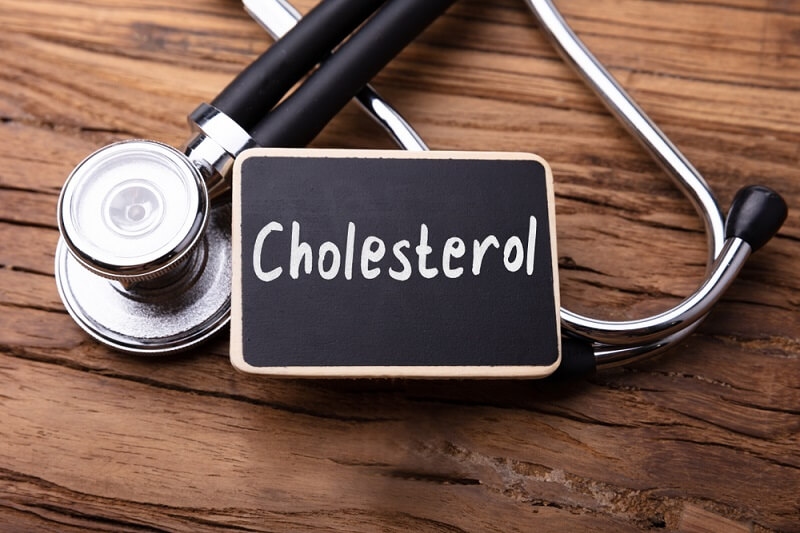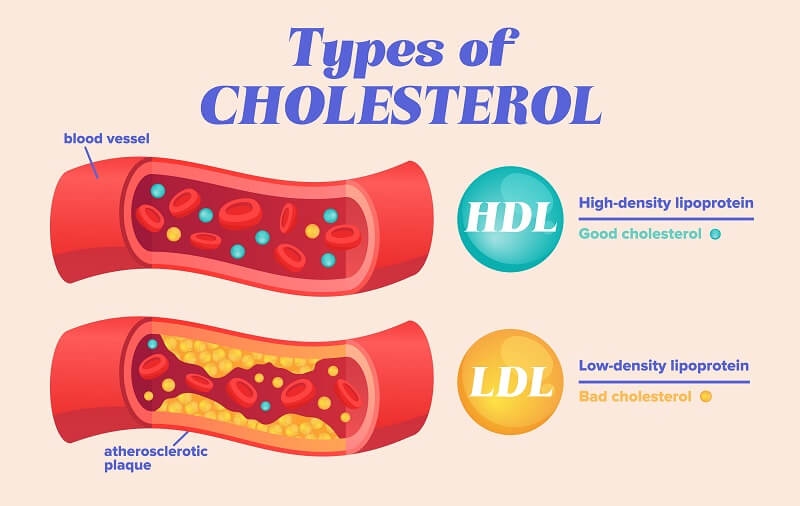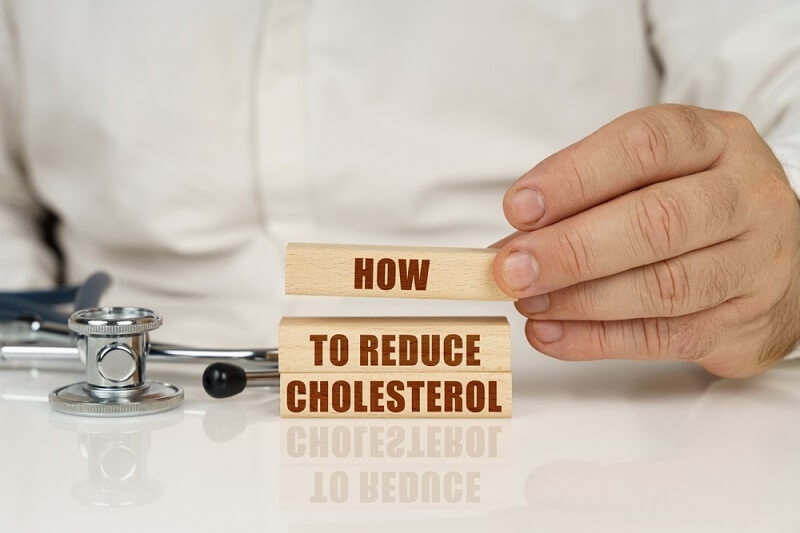Cholesterol Demystified: What You Need to Know Now

Cholesterol falls under the bad reputed compositions of the body, but it is proven to be highly important for them. Cholesterol levels, until controlled and kept balanced, can lead to health issues. Cholesterol is a deep-layered topic with significant applications for our health. To understand and manage it, let's explore every facet in detail, from cholesterol to its intricacies of symptoms, causes, and potential risk factors and complications.
What is Cholesterol?

Cholesterol is a fatty, waxy substance found in every body cell. It is an indispensable building block for cell membranes and plays a critical role in hormone production, vitamin D synthesis, and bile acid formation. Cholesterol doesn't dissolve in blood, so it travels through the bloodstream in lipoproteinsLDL (low-density lipoprotein) and HDL (high-density lipoprotein). LDL cholesterol is often termed "bad" because it can accumulate in artery walls, while HDL cholesterol is considered "good" because it helps remove excess cholesterol from the bloodstream.
Symptoms of Cholesterol
Cholesterol itself doesn't produce any overt symptoms. Instead, the consequences of high cholesterol like atherosclerosis, give rise to symptoms. Atherosclerosis occurs when cholesterol-laden plaques narrow and stiffen arteries. Symptoms may include:
- Chest pain (angina)
- Shortness of breath
- Fatigue.
These signs indicate an underlying cardiovascular problem and require immediate medical attention.
Causes of Cholesterol
Dietary Choices
The food you consume plays a significant role in your cholesterol levels. Diets high in saturated and trans fats, often found in processed foods, fried items, and red meat, can increase LDL (low-density lipoprotein) cholesterol levels. These fats can raise the "bad" cholesterol in your blood. This is why balanced diets are essential to maintain the body health.
Genetics
Some individuals have a genetic predisposition to high cholesterol. Familial hypercholesterolemia is a hereditary condition resulting in exceptionally high cholesterol levels due to gene mutation responsible for cholesterol regulation. This condition can lead to early heart disease.
Physical Inactivity
A sedentary lifestyle can lower HDL (high-density lipoprotein) cholesterol levels, often called "good" cholesterol. Regular physical activity can help increase HDL levels and improve overall cholesterol balance.
Obesity
Excess body fat around the abdomen is associated with elevated LDL cholesterol and lower HDL cholesterol. Losing weight through a combination of a healthy diet and regular exercise can positively impact cholesterol levels.
Smoking
Smoking damages blood vessels, making it easier for cholesterol to accumulate and form plaques. It also lowers HDL cholesterol levels. Quitting smoking is crucial in improving cholesterol profiles and overall cardiovascular health.
Medical Conditions that Cause Cholesterol

Diabetes
Diabetes, particularly type 2 diabetes, often leads to changes in cholesterol profiles. These changes include lower HDL (high-density lipoprotein) cholesterol levels, often referred to as "good" cholesterol, and elevated triglyceride levels. High blood sugar levels, a hallmark of diabetes, can impact how the body processes cholesterol. Elevated blood glucose can lead to the formation of harmful substances called advanced glycation end products (AGEs). AGEs can damage blood vessels and contribute to the development of atherosclerosis, the buildup of cholesterol-rich plaques in the arteries.
Hypothyroidism
An underactive thyroid gland, known as hypothyroidism, can lead to elevated LDL (low-density lipoprotein) cholesterol, often called "bad" cholesterol. The thyroid gland produces hormones that regulate metabolism, including cholesterol metabolism. When the thyroid gland is underactive and doesn't produce enough thyroid hormones, it can slow metabolic processes, including the clearance of LDL cholesterol from the bloodstream.
Liver Diseases
Disrupted Cholesterol Regulation: Conditions affecting the liver, such as NAFLD, can disrupt cholesterol regulation. The liver plays a central role in cholesterol metabolism, including cholesterol synthesis and clearance. In NAFLD, excess fat accumulates in the liver, leading to inflammation and liver dysfunction. This can alter cholesterol metabolism, potentially increasing LDL cholesterol levels.
Kidney Disease
Impaired kidney function can lead to changes in cholesterol levels, including higher LDL and lower HDL cholesterol. The kidneys play a role in clearing cholesterol from the bloodstream by excreting it in the urine. When kidney function is compromised, cholesterol clearance may be less efficient, leading to higher cholesterol levels in the blood.
Prevention for Cholesterol

A heart-healthy diet emphasizes fruits, vegetables, whole grains, lean proteins, and healthy fats like nuts and olive oil. Omega-3 fatty acids in fish, such as salmon and mackerel, can benefit heart health.
Regular Physical Activity
Doing at least 150 minutes of moderate-intensity aerobic weekly activity and strength training exercises can enhance HDL levels and improve overall cholesterol balance.
Weight Maintenance
Achieving and maintaining a healthy weight through a balanced diet and regular exercise can positively affect cholesterol levels. Weight loss can lead to reductions in LDL cholesterol and triglycerides.
Smoking Cessation
Quitting smoking is crucial for improving cholesterol profiles and overall cardiovascular health. It's a significant step in reducing the risk of heart disease.
Moderate Alcohol Intake
If you consume alcohol, do so in moderation. Excessive alcohol can raise triglyceride levels and contribute to high blood pressure, affecting cholesterol balance.
Risk Factors and Complications
Family History
A family history of high cholesterol or heart disease can significantly increase your risk. Your risk may be higher if close relatives have experienced heart disease at a young age.
Age and Gender
Cholesterol levels often rise with age. Men generally have a higher risk of heart disease than premenopausal women, but women's risk increases after menopause due to hormonal changes.
Other Health Conditions
Conditions like hypertension (high blood pressure) and diabetes can compound the effects of high cholesterol, increasing the risk of heart disease.
Medications
Some medications, such as corticosteroids and specific diuretics, can elevate cholesterol levels. If you are on these medications, your healthcare provider may monitor your cholesterol more closely.
Complications of High Cholesterol
Atherosclerosis
Cholesterol-rich plaques can accumulate in the arteries, narrowing them and increasing the risk of heart attacks and strokes. This narrowing is known as atherosclerosis and can occur in various routes.
Coronary Artery Disease
Narrowed coronary arteries can lead to chest pain (angina) and increase the risk of heart attacks. Severe blockages can deprive the heart muscle of oxygen and nutrients.
Peripheral Artery Disease
Plaques in arteries outside the heart, such as those in the legs, can reduce blood flow during physical activity, causing pain and increasing the risk of complications.
Aneurysms
Weakened artery walls can lead to the development of aneurysms, which are bulges that can rupture, causing life-threatening bleeding. This risk is mainly associated with atherosclerosis.
Conclusion
Cholesterol is vital for our bodies, but it must be maintained at appropriate levels. Regular check-ups with your healthcare provider, a balanced diet, physical activity, and a healthy lifestyle can go a long way in managing your cholesterol levels and reducing your risk of associated complications. Understanding cholesterol is the first step in taking control of your heart health and leading a longer, healthier life.
This content was created by AI
-1717753922-r.jpg)